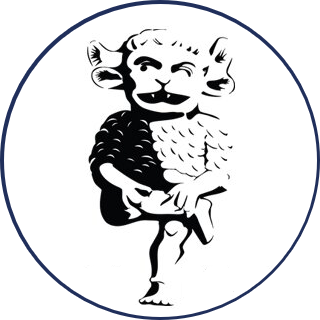
The entertainment industry has been trying for years to eradicate piracy by attacking the sites distributing the illegal content. But these sites keep on reappearing in a different shape or under a different name, so the next step was to crack down on the users themselves.
Seen as a clampdown on illegal downloaders, the controversial Digital Economy Bill didn’t create torrents of debate in Parliament on Wednesday night. It was passed by 189 votes to 47, and is a slightly watered-down version, with a few parts stripped out. [Read the whole 76-page bill here]
Nevertheless, the Digital Economy Bill will have serious consequences on illegal downloads of copyrighted material such as music, films or games, which incidentally are very popular among students.
Peer to peer (P2P) ‘torrent’ sites like The Pirate Bay or applications like LimeWire are commonly known as a source to cheaply fill up iPods with music, watch the latest film releases, or download computer games.
Here are some of the consequences of the Digital Economy Bill. These will likely affect those who live in private-rented accommodation and have their broadband supplied independently.
● “Copyright owners” must be provided with details (not identities) of infringers, which implies that internet service providers (ISPs) such as BT, Virgin, or TalkTalk must provide these details upon anonymous monitoring of your internet use.
● ISPs will be required to block users’ access to sites that offer illegal downloads, in this case hundreds of Pirate Bay-like sites. This is a measure many ISPs are likely to take as a first step towards enforcing the upcoming legislation.
● ISPs will have to send warning letters to users who consistently download copyrighted material. Ignoring the warnings might result in slower ‘throttled’ broadband speeds for the recipients of the letters or go as far as temporarily suspending internet access.

The University of Lincoln is taking steps to counter illegal downloading and has done since late last year. Computers connected to its network (either in university buildings or university accommodation) cannot access many illegal downloads sites. This applies for both wired and wireless connections.
Cafes, bars, hotels, or any other places that offer free WiFi connections are also expected to run into trouble with the new rules brought by the Digital Economy Bill. If clients use these connections to download pirated materials, business will see themselves forced to shut these services down.
There are several ways though (which The Linc doesn’t encourage nor disapprove of) to anonymise internet use and avoid ISP monitoring or university-enforced blockages. They include a bit of computer wizardry or purchasing access to a virtual private network (VPN).
Such an example is the iPredator VPN, created by the people behind The Pirate Bay. At £13 for three months, the service exchanges the IP number users get from their ISPs to an anonymous one, offering a safe and encrypted connection between the computer and internet. Using proxy services is another method.
Debate on the Digital Economy Bill is unlikely to stop here though. Many are expressing their dissatisfaction with the bill on Twitter, where #debill is now a trending topic. A sample of such tweets below:

If ever there was a reason to oust Gillian Merron then this is it. Ignoring letters and emails from her constituents, not turning up for the debates and then voting yes to this poorly thought out and rushed bill.
All the thieves will be really annoyed by this bill. Let’s see how many Twitter and complain as generally they will be those who are doing the stealing won’t they!!
I don’t see any problems with stopping those illegal sites even though the thieves use technical wording to try and claim they are not actually supplying the stolen material only pointing thieves to them…it’s all stealing and now the silly arguments are gone and it’s clear you need to just stop stealing.
Support the economy and stop being a lowlife thief.
Personally I think that to say it’s thieves complaining is completely reductionist.
The bill is poorly written, so vague that sites such as Wikileaks could be blocked: even Google could be blocked. They can block “a location on the internet which the court is satisfied has been, is being or is likely to be used for or in connection with an activity that infringes copyright”.
“Is likely to be used for”. Fantastic.
The cutting off of connection because a large corporation isn’t happy is also a ridiculous move. Especially for the given examples of coffee shops. And think – even though the University blocks illegal file sharing, if someone got round it and the content owner caught them, the University’s internet connection could theoretically get cut off. That’s a badly written law.
Watching the bill get passed was also a huge failure for democracy. Amendments were being made and others being dropped to squeeze the bill through as the last act of a dying Parliament. There wasn’t scrutiny, only a few individual people who discussed (particularly of note was Tom Watson), and then a hundred or so other MPs turned up to vote on something they didn’t understand.
This doesn’t really take into account the reason why people ‘steal’ in the first place. There are many issues ranging from the extortionate prices of new DVDs (don’t get me started on Blu-ray!) to DRM-crippled game releases. Sometimes pirated versions of games are far more convenient and less intrusive than the official versions because they don’t require constant internet connections or have a limited number of activations.
Instead of fighting the ‘digital revolution’, media companies should be trying to deliver music, film & games to consumers in the format and at the price-point that consumers are willing to pay… The issue here is mostly the greed of the record companies trying to dictate the market, and we can assume that artists themselves only see a tiny percentage of the profits themselves.